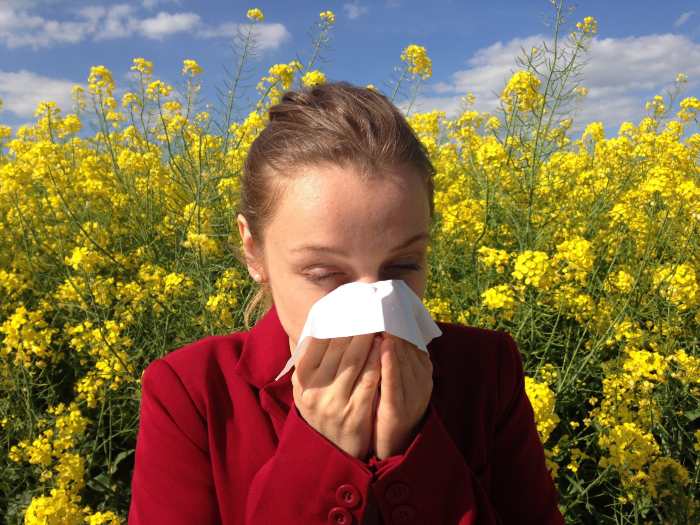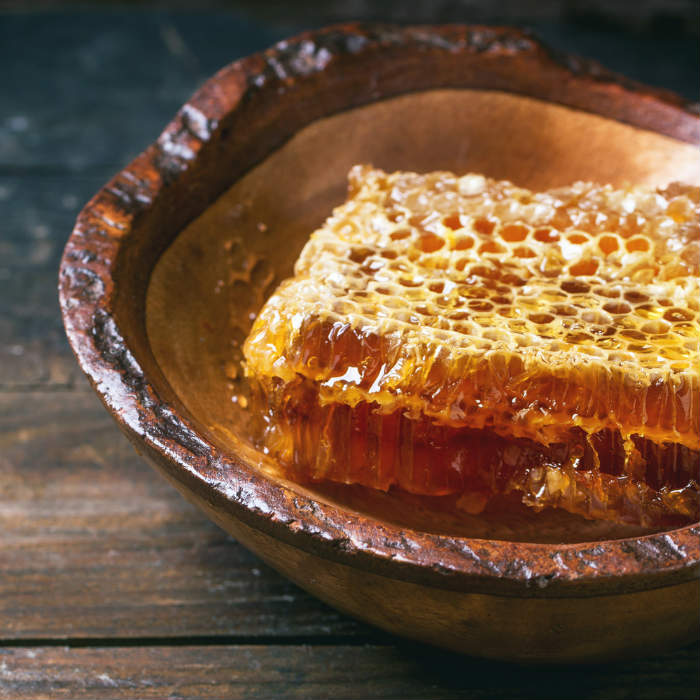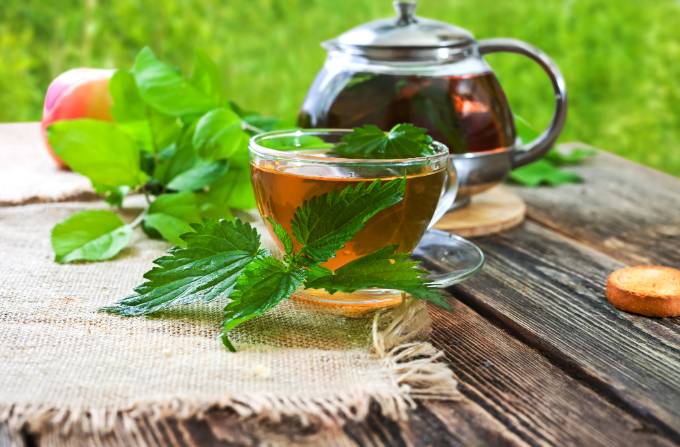7 Natural Allergy Remedies

Make sure to like Living Green and Frugally on Facebook, Shop at Amazon to help support my site and explore our PINTEREST BOARDS for innovative ways you can become self-sufficient.
Allergies are a common and often disruptive condition that affects millions of people worldwide. They occur when the immune system overreacts to substances that are typically harmless, such as pollen, pet dander, or certain foods. These substances, known as allergens, trigger an immune response that can result in a variety of symptoms, including sneezing, itching, runny nose, watery eyes, and in severe cases, difficulty breathing or anaphylaxis.
The exact cause of allergies is not fully understood, but it is believed to involve a combination of genetic and environmental factors. Individuals with a family history of allergies are more likely to develop them. Environmental factors, such as exposure to allergens during early childhood, can also play a significant role in the development of allergic reactions.
While over-the-counter medications and prescription drugs are available to manage allergy symptoms, many people seek natural remedies to avoid side effects and promote overall wellness. Here are seven natural allergy remedies that can help alleviate symptoms and improve your quality of life.
1. Local Honey
What it’s good for: Seasonal allergies, especially pollen allergies.
Why: Consuming local honey is thought to help your body build a tolerance to local pollen. The theory is similar to how allergy shots work, but in a much tastier form. By ingesting small amounts of local pollen through honey, your immune system may gradually become less sensitive to the allergen, reducing symptoms over time.

2. Quercetin
What it’s good for: General allergy symptoms, including nasal congestion and itchy eyes.
Why: Quercetin is a natural flavonoid found in many fruits and vegetables, such as apples, onions, and berries. It acts as a natural antihistamine, stabilizing the release of histamines and other chemicals that cause allergy symptoms. Additionally, quercetin has anti-inflammatory properties, which can further help reduce allergy discomfort.
3. Butterbur
What it’s good for: Hay fever and other seasonal allergies.
Why: Butterbur is a herb that has been shown to be effective in reducing the symptoms of hay fever, such as sneezing, nasal congestion, and itchy eyes. Studies have suggested that butterbur works by blocking leukotrienes, inflammatory molecules involved in the allergic response. It can be taken in supplement form, but it’s essential to use a product that is free of pyrrolizidine alkaloids (PAs), which can be toxic.
4. Probiotics
What it’s good for: Allergic rhinitis and eczema.
Why: Probiotics are beneficial bacteria that support gut health and the immune system. Research has shown that certain strains of probiotics can help balance the immune response and reduce the severity of allergy symptoms. By promoting a healthy gut microbiome, probiotics may help modulate the immune system and reduce the incidence of allergic reactions.
5. Stinging Nettle
What it’s good for: Reducing histamine-related allergy symptoms.
Why: Stinging nettle is a plant known for its anti-inflammatory properties. It contains natural antihistamines that can help alleviate symptoms such as sneezing, runny nose, and itching. Stinging nettle can be consumed as a tea, tincture, or in capsule form, making it a versatile option for natural allergy relief.

6. Nasal Irrigation
What it’s good for: Nasal congestion and sinus-related allergy symptoms.
Why: Nasal irrigation involves rinsing the nasal passages with a saline solution to remove allergens, mucus, and other debris. This practice can help reduce nasal congestion, sneezing, and postnasal drip. Using a neti pot or saline spray can provide immediate relief and help prevent the buildup of allergens in the nasal passages.
7. Vitamin C
What it’s good for: General allergy relief and immune support.
Why: Vitamin C is a powerful antioxidant that can help reduce the severity of allergic reactions. It acts as a natural antihistamine, lowering histamine levels in the body and providing relief from symptoms such as sneezing, runny nose, and watery eyes. Additionally, vitamin C supports the immune system, which can help your body respond more effectively to allergens.
Conclusion
Allergies can be challenging to manage, but incorporating natural remedies into your routine can provide significant relief and improve your overall well-being. From local honey and quercetin to probiotics and nasal irrigation, these natural options offer a variety of ways to combat allergy symptoms without the side effects of conventional medications. Always consult with a healthcare professional before starting any new treatment, especially if you have existing health conditions or are taking other medications.